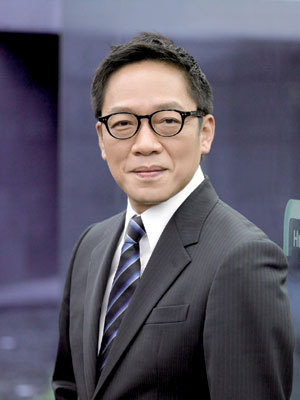Jeju, Hyundai Card criticized over eco-tourism project
By Korea HeraldPublished : Feb. 26, 2014 - 20:14
Hyundai Card and Jeju Provincial Office seem to have been a bit hasty in pursuing the so-called “Gapado Project,” which involves molding the small southern islet of Gapado into an eco-tourist hot spot
The plan, despite the good intentions of the two parties, has disgruntled the local community, which claim to have been excluded from the discussions about their residence.
In December 2013, the Jeju Special Self-Governing Provincial Office and Hyundai Card presented the blueprint for their Gapado project, an idea inspired by Japan’s popular Naoshima Island.
“There are concerns that Gapado and other Jejudo-affiliated islets, if left uncared for, may soon suffer from random and reckless development and thus lose their natural splendor,” said Kim Jin-tae, Hyundai Card’s brand management director.
“The Gapado project will not only optimize the islet’s tourist attractions but also prevent the potential speculative investment rush.”
The task force, led by renowned architect Choi Wook, will tear down and rebuild conventional asphalt roads and buildings so that they may harmonize with the islet’s natural environment, according to officials.
Hyundai Card’s commitment to the project also reflects the vision of its CEO Ted Chung, who has often said that corporate social contribution activities should be unique and inspirational.
The plan, despite the good intentions of the two parties, has disgruntled the local community, which claim to have been excluded from the discussions about their residence.
In December 2013, the Jeju Special Self-Governing Provincial Office and Hyundai Card presented the blueprint for their Gapado project, an idea inspired by Japan’s popular Naoshima Island.
“There are concerns that Gapado and other Jejudo-affiliated islets, if left uncared for, may soon suffer from random and reckless development and thus lose their natural splendor,” said Kim Jin-tae, Hyundai Card’s brand management director.
“The Gapado project will not only optimize the islet’s tourist attractions but also prevent the potential speculative investment rush.”
The task force, led by renowned architect Choi Wook, will tear down and rebuild conventional asphalt roads and buildings so that they may harmonize with the islet’s natural environment, according to officials.
Hyundai Card’s commitment to the project also reflects the vision of its CEO Ted Chung, who has often said that corporate social contribution activities should be unique and inspirational.

Jejudo Island, too, long had its eye on the unexploited islet, considering it a model example of eco-friendly development.
In February 2013, the provincial office designated Gapado as a pilot location for the carbon-free island project.
“Should the Gapado project turn out to be a success, we will expand the carbon-free development plan to surrounding islets, such as Marado and Udo,” said Jejudo governor Woo Keun-min.
The government recently also reported to President Park Geun-hye of plans to pursue more carbon-free locales ― such as Ulleungdo Island ― tailored on Gapado.
But a critical flaw was that it lacked communication and ensuing consent from the local community, those close to the matter said.
In order to implement the development, the provincial office had to limit the real estate transactions in the corresponding area which was some 288,061 square meters. Most of the islet residents, however, were unaware of such administrative measures until recently.
“It is not that we object to the cause of the project but so far (the task force) has failed to abide by principle and protocol,” said a resident representative during the briefing session in December.
Gapado, neighboring Korea’s southernmost islet of Marado, is famous for its idyllic pastoral scenery and yearly green barley festival.
By Bae Hyun-jung (tellme@heraldcorp.com)
-
Articles by Korea Herald








![[KH Explains] No more 'Michael' at Kakao Games](http://res.heraldm.com/phpwas/restmb_idxmake.php?idx=644&simg=/content/image/2024/04/28/20240428050183_0.jpg&u=20240428180321)

![[Weekender] How DDP emerged as an icon of Seoul](http://res.heraldm.com/phpwas/restmb_idxmake.php?idx=644&simg=/content/image/2024/04/25/20240425050915_0.jpg&u=)








![[Herald Interview] Mistakes turn into blessings in street performance, director says](http://res.heraldm.com/phpwas/restmb_idxmake.php?idx=652&simg=/content/image/2024/04/28/20240428050150_0.jpg&u=20240428174656)
